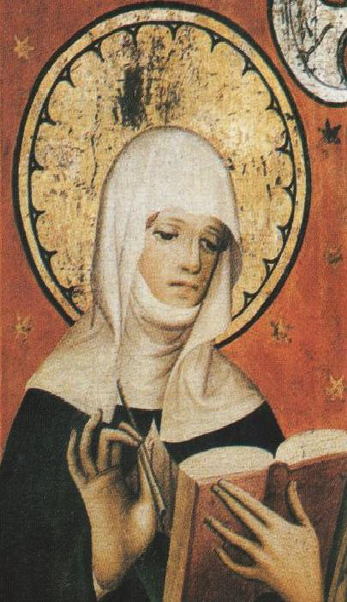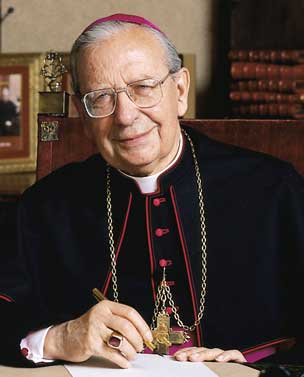Today is the feast of the Chinese Martyrs, St Augustine Zhao Rong and his companions. While we may be tempted to think that martyrdom is a distant thing, the experience of another age, we know all too well that it is a daily occurrence in many parts of the world and we may not be too far from it ourselves. Today's post is a homily from Fr Francis Li, a Chinese priest, who is the grandson and nephew of two martyrs. Though his grandfather and uncle are not among the Saints whose feast we celebrate today, they suffered alongside some of those who are.
"Today´s Gospel tells us that everyone who follows Jesus will not only receive a hundredfold reward, but they will also meet with persecution. Jesus noticed Peter´s reaction to these words. So at the Last Supper He repeated them to his disciples: "If the world hates you, realize that it has hated me before you.... If they persecuted me, they will persecute you also" (John 15:18-20).
The history of the Church informs us that the Church grows in the midst of persecution. "The blood of martyrs is the seed of Christians." This is the reason that the Church in China has been growing.
I feel very honoured to be able to give testimony about the martyrs in my own family and hometown. They were really martyrs for the faith.
First of all, we are happy that the Chinese government gave so much publicity to the canonizations at the beginning of this month in all the mass media. This caused everyone in Hong Kong, and in the whole world, to become aware that the Catholic Church was holding a canonization ceremony. Curiosity was aroused among those who heard the news, and they asked questions like: What is a canonization? Who are the people being canonized? Why are they being canonized? And why are people opposed to their being canonized?
Our diocese has arranged a series of talks and a Eucharistic celebration in honor of the Chinese martyr saints this afternoon. As long as we make what we hear today part of our lives, we will be able to give satisfactory answers to these questions.
The word "martyrdom" in the context of the Christian faith means to witness to one´s faith and even to sacrifice one´s life for one´s faith. For example, when speaking of the Boxer Revolution of 100 years ago, if you were ordered to support the Qing Dynasty government, and you were killed for not doing so, this would not be considered martyrdom. However, the Boxers ordered the missionaries and the Christians to renounce their faith. They were killed because they refused to do so. This is called martyrdom.
During the persecutions in the year 1900 in Shanxi Province, the names of 2,418 Christians were reported to the Vatican as giving their lives for their faith. In Taiyuan City altogether 69 persons were martyrs for the Lord. From these, only 26 were canonized as saints on October 1 this year. The 69 martyrs gave up their lives on three different days, July 9, 12 and 14. Two lay women died on July 12, and 39 Catholics died on July 14. Among them were my grandfather Li Zhongyi and an uncle, Li Shiyan. Three others were seriously wounded including my father, Li Shiheng.
What follows here is the testimony of the experiences of my mother and my father at that time.
My mother reported: "At about 4 o´clock on the afternoon of July 9, just as we were reciting our prayers, we suddenly heard beautiful music coming from the heavens. We had never heard such music before. Suddenly we saw an orderly row of large white banners coming towards us from Taiyuan City. When the banners passed over our heads the music got louder and more pleasant to the ear. Everyone clasped their hands on their hearts and knelt down. We began to encourage one another, and to think that this was certainly a sign that the bishops and priests had already given their lives for their faith. Sure enough, the next day a band of soldiers came to our place and announced that the bishops and others had been killed. Then we all thought that the time had arrived for us to give up our lives for our faith. We all began to prepare ourselves by continuously reciting prayers.
"After a little while a soldier shouted at us: ´Do you deny your religion or not?´ Not a sound was heard in response. Then the soldier shouted an order that two of the older Christian women should be strung up in the garden. He did this to arouse a fear of death in the hearts of the younger women. The two older women were not in the least afraid. They continually encouraged the younger ones, saying, ´Young ladies, don´t be afraid; now the gate of heaven is open; quickly prepare yourselves to ascend into heaven!´
On July 12 some of the officials came again and tried to frighten us into denying our faith. Again they were met with dead silence. Then the officials took down the two older women who had been strung up and brought them outside. In a little while, the soldiers brought in two bowls of blood, and told us that it was the blood of the two women whom they had killed. They did not kill us, but sent us back to the church."
The following is my father´s report:
On July 14, Yuxian, the governor of Shanxi Province, issued an order: "All male Christians who are unwilling to deny their faith must gather near the North Gate." When the Catholics heard this order they became very excited and their hearts were filled with joy. They all began marching towards the appointed place. Along the way they supported and encouraged one another.
My grandfather was one of these fervent Catholics. As soon as he heard the order, he said to my then 15-year-old father and my uncle, "Let´s go, we´re going to go to heaven today!" He then said goodbye to his family, and began walking towards the place of martyrdom. From their home to the appointed place was only about a 20-minute walk, but they had to pass through some winding streets.
When they arrived at the place of martyrdom, many Catholics had already gathered there. Most people knew one another. The place was not very large and the Christians were many. Each one was barely able to find space for himself. Everyone knelt down in a very composed manner and began to recite their favorite prayers. According to the custom of the time, the men wore the pigtail. In order to make it easier for the executioner to kill them, each one brought the pigtail forward over their heads and held it in front of them with their hands. They also bent their backs forward and stretched their necks out as far as they could. In this way there was enough space for the sword to strike them cleanly.
They waited for over three hours in the morning, and there was still no sign of the executioners. The Christians began to become agitated. Was it possible they would be denied the crown of martyrdom? Then about noon, a band of executioners, led by some soldiers, arrived at the place. The volume of the Christians´ prayers grew louder. And they stretched their necks even straighter. At the sound of the command "Kill," the executioners began swinging their swords helter-skelter.
My grandfather and uncle were kneeling along the path of the square. Their heads were swiftly and cleanly severed from their bodies. It so happened that my father was kneeling next to a large rock. Therefore when the sword came down, most of it struck the rock, and it only cut open some flesh on his neck. His throat was not damaged. Because the Christians were many, the executioners did not pay close attention as to whether the heads of everyone were separated from their bodies. In this way my father was denied the privilege of seeing God face to face, as my grandfather and uncle did.
The swordsmen had executed only about 10 percent of the Christians when the commander gave the order to stop the killing. The soldiers and executioners began to return to their barracks. The Catholics who had not been martyred were greatly disappointed. They blocked the withdrawal of the executioners, beseeching them to kill them also. But nothing could be done. The order had already been given. The executioners would not wield their swords again. The Christians fell into each other´s arms weeping.
My grandfather and uncle were among the 39 martyred for the faith that day. My father was wounded but survived. He would later say, "When the sword of the executioner came down upon my neck, the only thing I felt was the coldness of it. Then I lapsed into unconsciousness. I lay in a pool of blood for two days and two nights. I do not know how much blood I lost."
On the morning of the third day, that is, July 16, a non-Christian was passing by, and he noticed a slight movement among the corpses. He went closer, and saw that it was someone he knew. Then he heard my father whisper, "I am thirsty." This good-hearted person, realizing that (my father) had lost a lot of blood, took some rainwater from a puddle in a piece of broken crockery, and drop by drop poured it onto his lips. He then ran to my grandmother to report that her son was still alive. She brought him to live temporarily in another village located about 10 miles from the city.
No medicine was applied to my father´s wound, nor did the family have any money to have injections or to buy pills. My grandmother just entrusted my father to God´s care. God will arrange everything, she thought. Miraculously, the wound closed and became completely healed. Later, when my father narrated the story of his near-martyrdom to others, he always said: "From the time I received my wound until it was completely healed, I never felt any pain. Doesn´t that prove that God is always with me?"
Hearing about the experiences of the martyr-saints causes us to feel that what Saint Paul wrote was right: "No creature will be able to separate us from the love of God in Christ Jesus Our Lord" (Romans 8:39). Through the intercession of the martyr saints of China, let us ask the Lord to help us follow their example and witness to the Gospel in our daily lives by loving God and loving others. May God bless you!"














